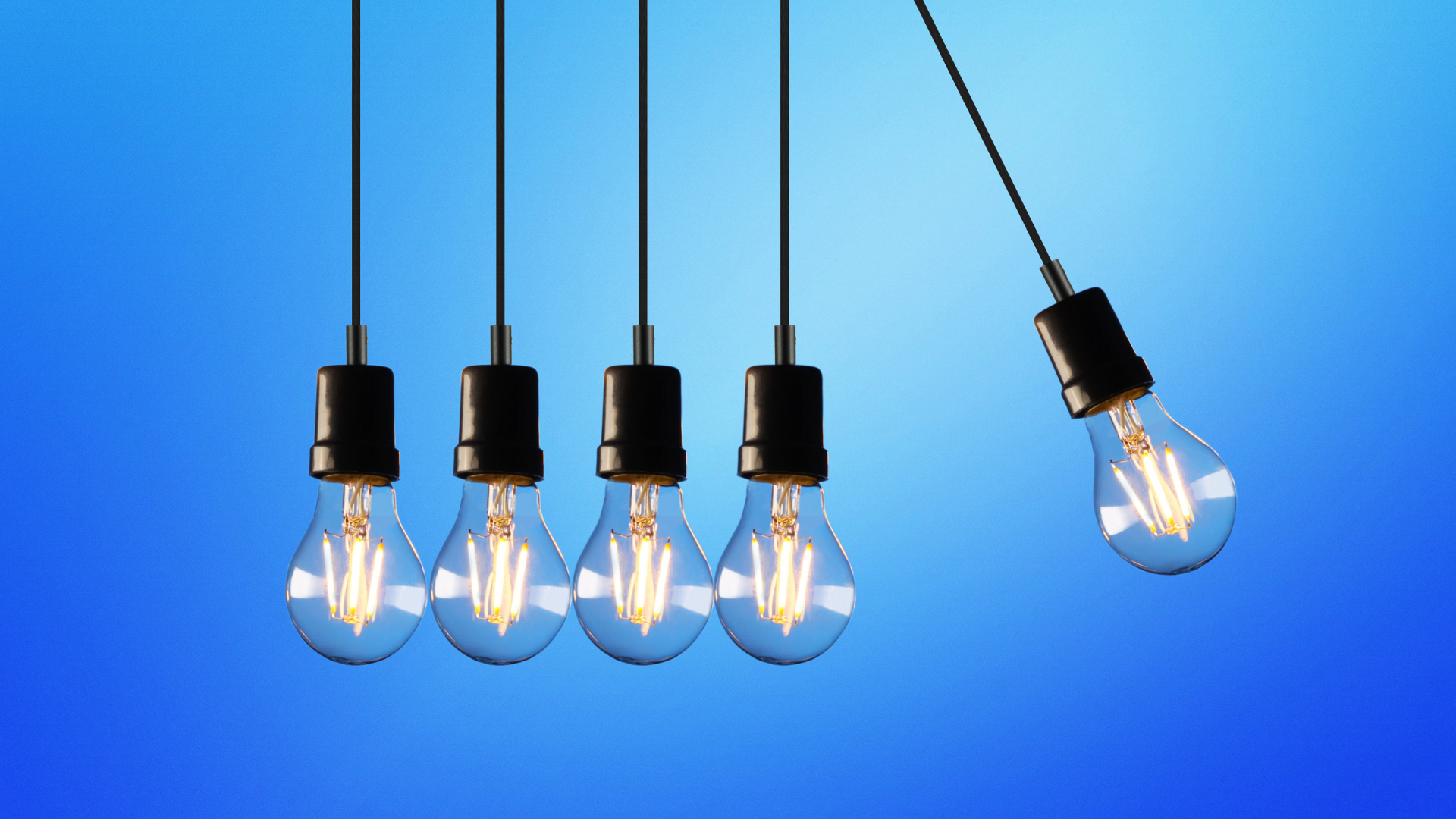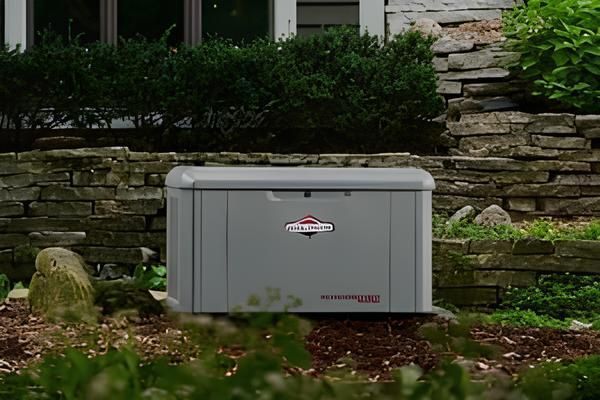Understanding Backup Power
Essential Features for Home Generators & Ensuring Long-Lasting Performance in Home Generators

When the lights flicker and the power grid falters, a reliable home generator can be the difference between comfort and chaos. But not all generators are created equal. With so many options on the market, it’s important to understand the important features that set apart a trustworthy backup power system from a mediocre one. In this article, we’ll examine the must-have features for home generators, debunk common myths, and provide expert guidance on ensuring long-lasting performance. By the end, you’ll be empowered to make informed decisions and keep your home running smoothly, even when the grid lets you down.
Key Takeaways:
- Automatic Transfer Switch: A crucial feature in home generators is an automatic transfer switch (ATS), which seamlessly switches power from the grid to the generator during outages, ensuring continuous power supply to your home. Look for a generator with a built-in ATS or consider purchasing a separate ATS unit.
- Power Output and Surge Capacity: When deciding on a home generator, consider the wattage required to power your vital appliances. Ensure the generator’s continuous power output and surge capacity meet your needs, taking into account the starting wattage of motors and compressors.
- Regular Maintenance and Monitoring: To ensure long-lasting performance and reliability, regular maintenance is vital. Look for generators with features like automatic oil changes, remote monitoring, and alert systems that notify you of potential issues, allowing you to take proactive measures to prevent downtime.
Powering Your Home
A reliable backup power system is necessary for any homeowner, especially those living in areas prone to frequent power outages or natural disasters. When the grid fails, a home generator can provide a seamless transition to backup power, ensuring your family’s comfort and safety.
Defining Backup Power
On occasion, the primary power source may fail, leaving your home in the dark. This is where backup power comes in – a secondary source of electricity that kicks in automatically to provide uninterrupted power supply to your home.
Importance of Home Generators
Generators have become an indispensable part of modern homes, providing a reliable source of power during outages and emergencies. They offer a sense of security and peace of mind, knowing that your home will remain powered even when the grid fails.
Powering your home with a generator is not just about convenience; it’s also about safety. During extended outages, a generator can keep your refrigerator running, preventing food spoilage and keeping your family healthy. It can also power medical equipment, lighting, and communication devices, making it a necessary investment for homeowners.
Key Features for Home Generators
While selecting a home generator, it’s crucial to consider the necessary features that ensure reliable performance and meet your specific needs. Here are the key features to look for:
- Power output and capacity
- Fuel type and efficiency
- Automatic transfer switches
- Noise level and sound attenuation
- Weather resistance and durability
- Remote monitoring and control
- Low oil shutdown and alarm systems
- Compliance with safety standards and regulations
Power Output and Capacity
Generators with higher power output and capacity can handle more appliances and devices, but they also consume more fuel and are often heavier and more expensive. Consider the total wattage of your necessary appliances and choose a generator that can provide at least that amount of power.
Fuel Type and Efficiency
The choice of fuel type and efficiency depends on your specific needs and preferences. Some generators run on gasoline, while others use propane or natural gas. Look for generators with high fuel efficiency to minimize operating costs and reduce environmental impact.
Features like fuel injection systems, air-cooled engines, and advanced combustion technology can significantly improve fuel efficiency. Additionally, some generators come with features like automatic idle control, which reduces fuel consumption when the generator is not under heavy load.
Automatic Transfer Switches
An automatic transfer switch (ATS) is a critical component of a home generator system, as it seamlessly transfers power from the grid to the generator during an outage. Look for ATS models with high switching speeds and reliable performance.
It’s necessary to choose an ATS that matches your generator’s power output and is compatible with your electrical panel. A high-quality ATS ensures that your appliances and devices receive a stable and reliable power supply during an outage.
Ensuring Long-Lasting Performance
Many homeowners invest in home generators to ensure a reliable source of power during outages, but neglecting regular maintenance can lead to premature wear and tear, reducing the lifespan of their generator. To get the most out of your investment, it’s imperative to prioritize maintenance and upkeep.
Regular Maintenance Schedules
With a well-planned maintenance schedule, you can identify potential issues before they become major problems. Regular checks should include inspecting the generator’s oil, fuel, and air filters, as well as ensuring proper ventilation and cooling system function.
Battery Care and Replacement
Battery maintenance is critical to extending the life of your home generator. Proper charging, cleaning, and testing can help prevent corrosion and sulfation, common causes of battery failure.
It’s imperative to follow the manufacturer’s guidelines for battery maintenance, as different types of batteries have unique requirements. Additionally, keeping track of battery age and performance can help you plan for timely replacements, ensuring your generator remains operational during extended power outages.
Monitoring System Performance
Monitoring your generator’s performance is crucial to identifying potential issues before they cause system failures. Regularly review the generator’s control panel, checking for error codes, voltage fluctuations, and other indicators of poor performance.
The data collected from monitoring system performance can help you optimize your generator’s settings, adjust maintenance schedules, and make informed decisions about repairs or upgrades. By staying informed, you can ensure your home generator remains a reliable source of backup power for years to come.
Safety Considerations
Once again, when it comes to home generators, safety should be your top priority. A generator can be a lifesaver during power outages, but it can also pose significant risks if not installed, operated, and maintained properly.
Electrical Safety Precautions
Any electrical device can be hazardous if not handled correctly. Concerning home generators, electrical safety precautions are crucial to prevent shocks, electrocution, and even fires. Ensure that your generator is installed by a licensed electrician, and always follow the manufacturer’s instructions for operation and maintenance.
Carbon Monoxide Poisoning Prevention
Any generator that runs on fossil fuels can produce carbon monoxide, a deadly gas that can be fatal in enclosed spaces. To prevent carbon monoxide poisoning, never run your generator indoors or in an attached garage, and always keep it at least 20 feet away from windows and doors.
The risks of carbon monoxide poisoning cannot be overstated. This odorless, colorless gas can quickly build up to toxic levels, causing headaches, dizziness, and even death. That’s why it’s crucial to install carbon monoxide detectors in your home, especially near sleeping areas, and to have your generator regularly inspected and maintained by a professional.
Noise Reduction and Soundproofing
Reduction of noise pollution is crucial when it comes to home generators. A noisy generator can be a nuisance to you and your neighbors, and prolonged exposure to loud noises can even cause hearing damage. Look for generators with built-in noise reduction features or consider soundproofing options, such as acoustic enclosures or mufflers.
With a little creativity and planning, you can minimize the noise impact of your generator. For example, you can install it in a soundproofed shed or enclosure, or use noise-reducing materials like sound-absorbing panels or acoustic foam. By taking these precautions, you can enjoy the benefits of backup power while keeping the peace in your neighborhood.
Choosing the Right Generator
For homeowners looking to invest in a reliable backup power solution, selecting the right generator is crucial. With so many options available, it’s vital to consider several key factors to ensure you get the perfect fit for your needs.
Assessing Your Power Needs
The first step in choosing a generator is to determine how much power you need. Calculate the total wattage required to run your vital appliances during an outage. Consider the type and number of devices you want to power, as well as their individual wattage ratings.
Comparing Generator Types (Portable, Standby, Inverter)
The type of generator you choose will greatly impact its performance and functionality. Portable generators are ideal for small to medium-sized homes, while standby generators provide whole-house power. Inverter generators offer clean energy and high efficiency.
- Portable generators: affordable, compact, and versatile
- Standby generators: automatic startup, whole-house power, and high capacity
- Inverter generators: clean energy, high efficiency, and quiet operation
- Assume that your power needs will increase over time, and choose a generator that can accommodate future growth.
Generator TypeKey FeaturesPortableAffordable, compact, and versatileStandbyAutomatic startup, whole-house power, and high capacityInverterClean energy, high efficiency, and quiet operation
A closer look at each generator type reveals their unique strengths and weaknesses. Portable generators are perfect for small to medium-sized homes, offering an affordable and compact solution. Standby generators, on the other hand, provide whole-house power and automatic startup, making them ideal for larger homes. Inverter generators boast clean energy and high efficiency, making them a popular choice for environmentally conscious homeowners.
- Consider the noise level, fuel efficiency, and maintenance requirements of each generator type
- Assume that you’ll need to balance power output with noise level and fuel efficiency
Considering Additional Features (Remote Monitoring, Smart Plugs)
Any modern generator worth considering should come equipped with advanced features that enhance convenience and performance. Remote monitoring capabilities allow you to track your generator’s status and performance from anywhere, while smart plugs enable you to control individual appliances.
Features like remote monitoring and smart plugs can significantly enhance your generator’s functionality. Imagine being able to monitor your generator’s performance in real-time, receiving alerts and notifications when maintenance is required, or controlling individual appliances with the touch of a button. These features can provide an added layer of convenience and peace of mind, ensuring your home remains powered and protected during an outage.
Installation and Integration
Despite the importance of choosing the right home generator, proper installation and integration are equally crucial to ensure safe and efficient operation. A well-installed generator can provide years of reliable service, while a poorly installed one can lead to safety hazards, equipment damage, and inefficient performance.
Professional Installation vs. DIY
One of the most critical decisions you’ll make during the installation process is whether to hire a professional or attempt a DIY installation. While DIY installation may seem like a cost-effective option, it’s imperative to consider the complexity of the task and the potential risks involved. Professional installers have the necessary expertise and experience to ensure a safe and compliant installation.
Connecting Your Generator to Your Home’s Electrical System
Any home generator installation requires connecting the generator to your home’s electrical system. This involves installing a transfer switch, which allows the generator to supply power to your home during an outage, while also ensuring safe and efficient operation.
Generator connection involves more than just hooking up wires. It requires a thorough understanding of electrical systems, load calculations, and safety protocols. A professional installer will assess your home’s electrical system, determine the correct wiring and connections, and ensure that the generator is properly sized to meet your power needs.
Ensuring Compliance with Local Building Codes
To ensure a safe and compliant installation, it’s imperative to familiarize yourself with local building codes and regulations. These codes vary by region, and failure to comply can result in fines, penalties, or even system shutdown.
With local building codes in mind, a professional installer will ensure that your generator installation meets all necessary standards, from electrical connections to ventilation and noise reduction. By doing so, you can rest assured that your home generator is installed correctly, safely, and in compliance with local regulations.
To wrap up
Upon reflecting on the crucial features of home generators and the secrets to their long-lasting performance, it’s clear that understanding backup power is crucial for any homeowner. By grasping the importance of wattage, fuel type, and noise level, you’ll be well-equipped to make an informed decision when selecting a generator. Moreover, by following simple maintenance tips and performing regular checks, you’ll ensure your generator remains a reliable ally during power outages. With this knowledge, you’ll be empowered to keep the lights on and your family safe, no matter what Mother Nature throws your way.
FAQ
Q: What are the crucial features to look for in a home generator for reliable backup power?
A: When choosing a home generator, it’s crucial to consider several crucial features to ensure reliable backup power. These features include:
- Automatic Transfer Switch (ATS): This feature allows the generator to automatically switch on during a power outage, providing seamless transition and minimizing downtime.
- High-quality alternator: A reliable alternator is crucial for producing clean and stable power, which is critical for sensitive electronics and appliances.
- Fuel efficiency: A fuel-efficient generator can help reduce operating costs and minimize environmental impact.
- Low noise operation: A quiet generator ensures minimal disturbance and disruption to daily life. Remote monitoring: This feature allows users to monitor the generator’s performance and receive notifications in case of any issues, ensuring prompt maintenance and minimizing downtime.
- Weather-resistant design: A generator designed to withstand harsh weather conditions can provide reliable performance even in extreme temperatures and weather events.
By considering these crucial features, homeowners can ensure their generator provides reliable backup power during outages and emergencies.
Q: How can I ensure long-lasting performance from my home generator?
A: To ensure long-lasting performance from your home generator, it’s crucial to follow regular maintenance and upkeep routines. These include:
- Regular oil changes: Regular oil changes help to lubricate moving parts, reduce wear and tear, and prevent overheating.
- Filter cleaning and replacement: Clean or replace air and fuel filters regularly to ensure optimal performance and prevent damage from debris and contaminants.
- Spark plug maintenance: Clean or replace spark plugs as recommended to ensure efficient combustion and prevent misfires.
- Battery maintenance: Keep the generator’s battery charged and in good condition to ensure reliable starting and performance.
- Professional servicing: Schedule regular professional servicing to identify and address any potential issues before they become major problems.
By following these maintenance routines, homeowners can help extend the lifespan of their generator, ensure reliable performance, and minimize downtime.
Q: What are some common mistakes to avoid when selecting and installing a home generator?
A: When choosing and installing a home generator, there are several common mistakes to avoid. These include:
- Underestimating power requirements: Failing to accurately calculate power requirements can lead to inadequate performance, overheating, and premature wear.
- Ignoring safety considerations: Failure to follow safety guidelines and regulations can result in electrical shock, fire hazards, and other safety risks.
- Improper installation: Incorrect installation can lead to reduced performance, increased wear and tear, and even complete system failure.
- Neglecting regular maintenance: Failing to perform regular maintenance can result in reduced performance, premature wear, and even complete system failure.
- Overlooking local building codes and regulations: Failure to comply with local building codes and regulations can result in fines, penalties, and even system shutdown.
By avoiding these common mistakes, homeowners can ensure a safe, reliable, and efficient home generator installation that provides long-lasting performance and peace of mind.
All Rights Reserved | Power Up Generator Solutions



